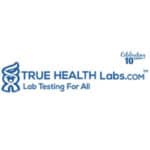The Top 10 Blood Tests Every Senior Should Get Regularly
As we age, our bodies undergo various changes that can make us more susceptible to certain health conditions. That’s why it’s crucial for seniors to take proactive steps towards maintaining their health. One such step is getting regular blood tests. Blood tests can help identify potential health problems early, giving seniors the opportunity to take corrective measures before the situation worsens. In this article, we will take a look at the top 10 blood tests every senior should get regularly.
The Top 10 Blood Tests Every Senior Should Get Regularly
-
Complete Blood Count (CBC)
Let’s begin with the complete blood count, or CBC. This blood test is one of the most commonly performed tests and it checks for a number of different things in the blood. The count gives information about red blood cells, white blood cells, and platelets. In particular, it can detect anemia, infections, and other conditions such as leukemia. This test is recommended for seniors at least once a year.
Where You Should Take a CBC Test?
 The CBC with Differential and Platelet Count Blood Test from Personalabs is an essential blood test that provides a comprehensive evaluation of an individual’s overall health status. It measures different components of the blood, including white blood cells, red blood cells, and platelets, which can be indicative of various health conditions. The test is used to diagnose anemia, infections, autoimmune diseases, and even some forms of cancer. Personalabs makes it easy to get tested with their online ordering system and convenient lab locations throughout the country. Results are available online, allowing individuals to take charge of their health by tracking and managing their test results.
The CBC with Differential and Platelet Count Blood Test from Personalabs is an essential blood test that provides a comprehensive evaluation of an individual’s overall health status. It measures different components of the blood, including white blood cells, red blood cells, and platelets, which can be indicative of various health conditions. The test is used to diagnose anemia, infections, autoimmune diseases, and even some forms of cancer. Personalabs makes it easy to get tested with their online ordering system and convenient lab locations throughout the country. Results are available online, allowing individuals to take charge of their health by tracking and managing their test results.
>>>Don’t wait until it’s too late, get a CBC with Differential and Platelet Count Blood Test to catch any potential health issues early! -
Lipid Panel
The lipid panel test is also a standard blood test for seniors. The purpose of this test is to measure the amount of lipids, or fats, in the blood. Cholesterol is a type of lipid that increases the risk of heart disease if present in high amounts. The lipid panel measures cholesterol levels as well as triglycerides, another type of lipid. This test is recommended every three to five years for seniors.
Where You Should Take a LIPID Test?
 The Advanced Lipid Panel (includes Lp(a)) from Your Lab Work is a comprehensive package that evaluates the levels of cholesterol and other lipids in the blood. The lipid panel is a crucial tool for assessing an individual’s risk of developing cardiovascular disease and provides valuable information to help in developing a personalized treatment plan. Your Lab Work offers easy online ordering and convenient lab testing options throughout the United States. Results are typically available in just a few days and can be accessed online through the Your Lab Work portal.
The Advanced Lipid Panel (includes Lp(a)) from Your Lab Work is a comprehensive package that evaluates the levels of cholesterol and other lipids in the blood. The lipid panel is a crucial tool for assessing an individual’s risk of developing cardiovascular disease and provides valuable information to help in developing a personalized treatment plan. Your Lab Work offers easy online ordering and convenient lab testing options throughout the United States. Results are typically available in just a few days and can be accessed online through the Your Lab Work portal.
>>> Don’t wait until it’s too late, order your LIPID Panel today and take control of your heart health! -
Thyroid Stimulating Hormone (TSH)
The thyroid stimulating hormone test is used to measure the levels of TSH in the blood. TSH is made in the pituitary gland and regulates the thyroid gland’s production of hormones. The thyroid gland is responsible for controlling metabolism. An underactive thyroid can cause fatigue, weight gain, dry skin, and a host of other symptoms. This test is recommended every five years for seniors.
Where You Should Take a TSH Test?
 The Basic Thyroid Panel from True Health Labs is a comprehensive blood test that evaluates the function of the thyroid gland. The thyroid gland plays a critical role in regulating metabolism, energy levels, and many other bodily functions. The panel measures levels of thyroid hormones (TSH, T3, T4) and thyroid antibodies, which can help to identify many thyroid disorders, including hypothyroidism and hyperthyroidism. True Health Labs offers easy online ordering and convenient lab testing options throughout the United States. Results are available online, allowing individuals to take control of their thyroid health and work with their healthcare provider to manage any necessary treatments.
The Basic Thyroid Panel from True Health Labs is a comprehensive blood test that evaluates the function of the thyroid gland. The thyroid gland plays a critical role in regulating metabolism, energy levels, and many other bodily functions. The panel measures levels of thyroid hormones (TSH, T3, T4) and thyroid antibodies, which can help to identify many thyroid disorders, including hypothyroidism and hyperthyroidism. True Health Labs offers easy online ordering and convenient lab testing options throughout the United States. Results are available online, allowing individuals to take control of their thyroid health and work with their healthcare provider to manage any necessary treatments.
>>> Stay on top of your health and get a Basic Thyroid Test today! -
Hemoglobin A1C
The hemoglobin A1C test is important for seniors with diabetes. This test measures average blood sugar levels over the past 2-3 months. High A1C levels indicate poor blood sugar control and can cause damage to organs and blood vessels. Seniors with diabetes should get this test done every three to six months or as recommended by their doctor.
Where You Should Take a Hemoglobin A1c Test?
 If you’re looking to monitor your blood sugar levels and manage your diabetes, then hemoglobin A1c testing is an essential tool. The Hemoglobin A1c testing service from HealthLabs.com makes it easy to keep track of your glucose levels from the comfort of your own home. This test provides an accurate measurement of your average blood glucose levels over the past two to three months, which is critical information for managing diabetes. With fast and confidential results, the Hemoglobin A1c testing service from HealthLabs.com takes the hassle out of diabetes testing and helps you stay on top of your health.
If you’re looking to monitor your blood sugar levels and manage your diabetes, then hemoglobin A1c testing is an essential tool. The Hemoglobin A1c testing service from HealthLabs.com makes it easy to keep track of your glucose levels from the comfort of your own home. This test provides an accurate measurement of your average blood glucose levels over the past two to three months, which is critical information for managing diabetes. With fast and confidential results, the Hemoglobin A1c testing service from HealthLabs.com takes the hassle out of diabetes testing and helps you stay on top of your health.
>>> Order your Hemoglobin A1c test today and take the first step towards better diabetes management. -
Comprehensive Metabolic Panel (CMP)
The comprehensive metabolic panel is a blood test that gives important information about a senior’s overall health. The CMP measures glucose, electrolyte and fluid levels, kidney and liver health, and protein levels. The test is recommended every year for seniors.
Where You Should Take an At-Home Metabolism Test Test?
 Understanding your body’s metabolism is essential for designing an effective fitness and nutrition plan. The At-Home Metabolism Test from myLAB Box provides an easy and convenient way to test your metabolic rate in the comfort of your own home. This test measures your resting metabolic rate, which is critical information for developing a personalized diet and fitness plan that can help you achieve your health and fitness goals.
Understanding your body’s metabolism is essential for designing an effective fitness and nutrition plan. The At-Home Metabolism Test from myLAB Box provides an easy and convenient way to test your metabolic rate in the comfort of your own home. This test measures your resting metabolic rate, which is critical information for developing a personalized diet and fitness plan that can help you achieve your health and fitness goals.
>>> Order your At-Home Metabolism Test from myLAB Box today and take the first step towards understanding your body’s needs and achieving your health and fitness goals! -
Vitamin D
Vitamin D is an essential nutrient for maintaining strong bones and optimal health. Vitamin D deficiency can cause a range of problems such as osteoporosis, muscle weakness, and fatigue. This test measures the levels of vitamin D in the blood. The test is recommended every two to three years for seniors.
Where You Should Take a Vitamin D Test?
Maintaining healthy levels of Vitamin D is critical for overall health and wellbeing as we age. As our bodies get older, our ability to absorb crucial vitamins, including Vitamin D, can become compromised, leading to deficiencies that can impact our bone strength, energy levels, and immune function. The Vitamin D Test for Seniors from True Health Labs provides a simple and reliable way to check Vitamin D levels, providing you with valuable information needed to optimize your health and wellbeing. Order your Vitamin D Test for Seniors from True Health Labs today and take the first step towards better health.
>>> Don’t let Vitamin D deficiency impact your quality of life – order your Vitamin D Test for Seniors from True Health Labs today and get the answers you need to feel your best! -
Serum Uric Acid
High levels of uric acid in the blood can cause gout, a painful and inflammatory condition. Seniors with a family history of gout or other risk factors should get tested for serum uric acid. The test is recommended every two to three years for seniors.
Where You Should Take a Serum Uric Acid Test?
If you’re looking to monitor your uric acid levels and prevent or manage conditions like gout, kidney stones, and joint pain, then the Uric Acid Serum test from True Health Labs is an excellent option. This accurate and easy-to-use test measures the amount of uric acid in your blood and provides valuable insights into your overall health. By understanding your uric acid levels, you can make informed decisions about your diet, exercise routine, and other lifestyle factors that can impact your health. With fast results and confidential testing, the Uric Acid Serum test from True Health Labs makes it easy and convenient to stay on top of your health.
>>> Order your Uric Acid Serum test today and take the first step towards better health and wellness! -
Testosterone Levels
Testosterone is the hormone responsible for maintaining muscle mass, bone density, and sex drive in men. Testosterone levels naturally decline with age, but seniors with low levels may experience symptoms such as fatigue, depression, and erectile dysfunction. The testosterone test is recommended for men over 50 or those experiencing symptoms.
Where You Should Take a Testosterone Test?
 The Testosterone Test from empowerDX is an essential tool for evaluating testosterone levels in both men and women. Testosterone plays a critical role in the development of muscle mass, bone density, and libido, among other factors. Hormonal imbalances can lead to a variety of symptoms, including fatigue, decreased libido, and depression. empowerDX offers easy online ordering and convenient lab testing options nationwide. With fast turnaround times and online access to results, individuals can take control of their hormonal health and work with their healthcare provider to manage any necessary treatments.
The Testosterone Test from empowerDX is an essential tool for evaluating testosterone levels in both men and women. Testosterone plays a critical role in the development of muscle mass, bone density, and libido, among other factors. Hormonal imbalances can lead to a variety of symptoms, including fatigue, decreased libido, and depression. empowerDX offers easy online ordering and convenient lab testing options nationwide. With fast turnaround times and online access to results, individuals can take control of their hormonal health and work with their healthcare provider to manage any necessary treatments.
>>> Concerned about hormonal imbalances? Get your Testosterone Test for Seniors from empowerDX to find out more! -
Prostate Specific Antigen (PSA) Test
The prostate-specific antigen test is recommended for men over 50. This test measures the levels of PSA, a protein produced by the prostate gland. High levels of PSA can indicate prostate cancer or other prostate problems. This test is recommended every year or every other year for seniors at risk of prostate problems.
Where You Should Take a Prostate Specific Antigen (PSA) Test?
As men age, keeping tabs on prostate health becomes increasingly important. The Prostate Specific Antigen (PSA) Test for Seniors from True Health Labs provides a quick and reliable way to evaluate PSA levels, which can be a valuable tool in detecting potential prostate issues early on. By monitoring PSA levels regularly, men can take proactive steps to protect their prostate health and prevent serious complications.
>>> Order your Prostate Specific Antigen (PSA) Test for Seniors from True Health Labs today and take control of your health and wellbeing. -
C-reactive Protein (CRP)
CRP is a protein that increases in response to inflammation in the body. High levels of CRP can indicate a risk of heart disease, stroke, or other inflammatory diseases. Seniors with a family history of heart disease or other risk factors should get their CRP levels checked every year or every two years.
Where You Should Take a High Sensitivity C-Reactive Protein (hs-CRP) Blood Test?
 Elevated inflammation in the body can put you at increased risk for heart disease and other chronic conditions. The High Sensitivity C-Reactive Protein (hs-CRP) Blood Test from Walk in Labs provides a quick and reliable way to measure the levels of CRP in your blood. This test can provide an early warning sign of potential health problems and prompt you to take action to reduce inflammation, prevent disease and improve overall health. Don’t wait until it’s too late to address inflammation in your body.
Elevated inflammation in the body can put you at increased risk for heart disease and other chronic conditions. The High Sensitivity C-Reactive Protein (hs-CRP) Blood Test from Walk in Labs provides a quick and reliable way to measure the levels of CRP in your blood. This test can provide an early warning sign of potential health problems and prompt you to take action to reduce inflammation, prevent disease and improve overall health. Don’t wait until it’s too late to address inflammation in your body.
>>> Order your High Sensitivity C-Reactive Protein (hs-CRP) Blood Test from Walk in Labs today and get the insights you need to stay healthy.
Benefits of Regular Blood Testing for Seniors
Regular blood testing is an essential component of preventive healthcare, especially for seniors. Here are some benefits of regular blood testing for seniors:
- Early Diagnosis: Regular blood testing can detect medical conditions early and provide an opportunity for early diagnosis and treatment. Early diagnosis is particularly critical for diseases like cancer, HIV, diabetes, and heart disease.
- Monitoring Chronic Conditions: Seniors who are living with chronic conditions like diabetes, high blood pressure, or kidney disease, require frequent blood testing. Through regular testing, doctors can monitor treatment effectiveness and adjust medications or treatments when necessary.
- Overall Well-Being: Regular blood testing can identify underlying health problems. Treatment of these potential issues can significantly improve overall physical and emotional well-being, as well as increasing life expectancy.
- Customized Care: Based on the results of blood tests, doctors can customize seniors’ healthcare based on their unique needs and health status.
Examples of How Each Test Has Helped Seniors Identify Health Problems Early
Here are some real-life examples of how each test has helped seniors identify health problems early:
- Complete Blood Count (CBC): A CBC detected anemia in a senior, which was due to internal bleeding and required immediate medical intervention.
- Lipid Panel: Lipid panel found elevated cholesterol levels in a senior, who was then able to make dietary and lifestyle changes to lower their level and avoid heart disease.
- Thyroid Stimulating Hormone (TSH): TSH test diagnosed hypothyroidism in a senior and was referred to a specialist for further treatment.
- Hemoglobin A1C: Hemoglobin A1C helped a senior with diabetes keep a close eye on their blood sugar levels and avoid complications.
- Comprehensive Metabolic Panel (CMP): CMP helped seniors monitor their overall health and detect issues like liver disease, kidney disease, or electrolyte imbalances before they cause damage.
- Vitamin D: A senior who had osteoporosis was diagnosed with Vitamin D deficiency, which helped doctors prescribe treatment to improve bone health.
- Serum Uric Acid: A senior who had chronic joint pain was diagnosed with gout through Serum Uric Acid testing.
- Testosterone Levels: Low testosterone levels diagnosed in a senior helped with depression and exhaustion and led to effective treatment adjusting testosterone levels.
- Prostate Specific Antigen (PSA) Test: PSA was detected in a senior, and further evaluation revealed early-stage prostate cancer, which was addressed early.
- C-reactive Protein (CRP): Elevated CRP levels resulted in further testing for a senior that led to the diagnosis of inflammatory arthritis in early stages.
What to Expect During a Blood Test:
Blood testing is a common and relatively simple process. Here is an overview of what seniors can expect during a blood test:
- Arrive at the Clinic: Seniors have to schedule their appointment beforehand and arrive at the clinic at the designated time.
- Registering Patient: Patients will have to check in at the front desk, where they may have to provide basic personal information and insurance information.
- Blood Draw: For most blood tests, a sample of blood is taken from a vein in your arm. The technician will clean the area with an alcohol pad and then use a needle to draw blood.
- Pain: Seniors usually feel minimal or no pain during the blood draw. There may be a small pricking sensation when the needle is inserted, and some patients may feel a slight pulling sensation.
- Dressing the Wound: Once the blood is drawn, a bandage is applied to the puncture site.
- After Care: Seniors can resume their normal activities immediately after a blood test with no further care required.
Tips for Preparing for a Blood Test
Preparing for a blood test properly can help seniors get the most accurate results. Here are some tips for seniors on how to prepare for a blood test:
- Follow Fasting Instructions: Some blood tests require fasting, so seniors should follow the fasting instructions carefully. Typically, this involves not eating or drinking anything except water for 8-12 hours before the test.
- Know Medication Instructions: Medications that seniors are taking can affect blood test results, so they need to know if they should stop taking them or change their dosage before the test. They should always consult their healthcare provider before making any changes.
- Drink Plenty of Water: Drinking plenty of water before a blood test can help make veins more visible and easier to access.
- Wear Loose Clothing: Seniors should wear loose clothing with sleeves that can easily be rolled up to provide improved access to the blood draw area.
- Relax: Stress can cause veins to constrict, which in turn makes it harder to draw blood. Seniors should try to stay calm and relaxed during the blood draw procedure.
How to Read and Interpret Blood Test Results
Interpreting blood test results can be challenging. Here is a step-by-step guide seniors can use to help them understand their blood test results:
- Compare Results with Reference Range: Seniors should examine their test result and compare it with the reference range provided, which indicates normal ranges for that particular test.
- Note Abnormal Results: Any marked deviation from the reference range is worth noting and discussing with their healthcare provider.
- Analyze Trend Over Time: Seniors should assess trends over time to see if their test results are consistently changing.
- Do Additional Tests as Needed: Seniors should know that additional blood tests may need to be done to determine the cause of abnormal test results.
- Talk to Healthcare Provider: Seniors should ensure to consult with their healthcare provider to better understand their blood test results.
FAQs:
Here are some common questions and concerns seniors may have about getting blood tests and their answers:
-
Are Blood Tests Painful?
Blood tests are generally painless. Patients may experience minimal discomfort or a slight pricking sensation when the needle is inserted.
-
Are Blood Tests Accurate?
Blood tests are typically very accurate. Occasionally errors may occur, but these mistakes are usually detected during subsequent tests, and steps are taken to correct them.
-
Do I Need to Fast Before a Blood Test?
Some blood tests require fasting before taking the test. It is important to follow the instructions carefully to ensure more accurate results.
-
Can Blood Tests Be Done at Home?
Some blood tests can be done at home with at-home test kits. These tests are usually used for managing chronic conditions like diabetes, high cholesterol, or thyroid issues.
-
How Often Should I Get Blood Tests?
The frequency of blood tests depends on various factors, including age, gender, health status, and family history. Seniors are advised to speak with their doctor about the recommended testing interval.
-
Are Abnormal Results Always Dangerous?
Not all abnormal blood test results are indicative of danger. Some values that are slightly higher or lower than normal are not a cause for concern while others require close monitoring or treatment.
-
Do All Tests Produce Absolute Results?
There are situations where test results can be inconclusive or errors can happen. These occasions require repeat testing for more accurate results.
-
Is Self-Interpretation Appropriate?
Seniors should avoid interpreting their blood test results themselves. The guidance of a healthcare provider is required so as not to misunderstand the results and arrive at incorrect conclusions.
Getting regular blood tests is one of the essential preventive care measures that senior citizens should prioritize. The top 10 blood tests seniors should regularly get are the Complete Blood Count (CBC), Lipid Panel, Thyroid Stimulating Hormone (TSH), Hemoglobin A1C, Comprehensive Metabolic Panel (CMP), Vitamin D, Serum Uric Acid, Testosterone Levels, Prostate Specific Antigen (PSA) Test, and C-reactive Protein (CRP). Proper preparation for blood tests, knowing how to read and understand the test results, and consulting with healthcare providers are important steps to ensuring optimal blood test results. Regular blood testing helps detect potential health concerns early, monitor chronic conditions, improve overall well-being, and customize care for the unique needs of seniors. Seniors should speak with their healthcare provider to determine which tests are right for them and how often they should get tested.
(The Top 10 Blood Tests Every Senior Should Get Regularly)
Category: Information & Guide






